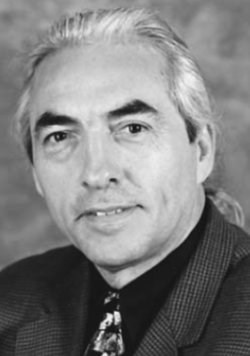NEWS RELEASE
ASSEMBLY OF FIRST NATIONS ************************* First Nations seek clarity on Harper's motion on 'nationhood' OTTAWA, Nov. 23 - In reference to the motion made by Prime Minister Harper yesterday, the Assembly of First Nations calls upon the Prime Minister to clarify his position in a way that does justice to the status and role of First Nations in Quebec and within Canada as a whole. National Chief Phil Fontaine commented that "mindful as we are of our own history and identity, we want to be respectful of other communities and traditions in Canada.
The AFN has been, and remains, open to recognition of the nature of Quebec society that acknowledges features such as the French-speaking majority in that province.
It is important, however, that such recognition be carried out in a way that does not dismiss or diminish in any way, the nationhood of First Nations in Quebec and throughout Canada." AFN Regional Chief of Quebec and Labrador, Ghislain Picard added that "the First Nations of Quebec reserve the right to assert and affirm our status as nations regardless of what other governments may imply."
Furthermore, Picard stated that "the recognition by one government of another is only meaningful through a process of negotiation to confirm mutual understandings of the relationship."
The aboriginal and treaty rights of First Nations peoples, as referenced in the Constitution Act (1982), already provide for the unique status of First Nations in law.
The Royal Commission on Aboriginal Peoples, which delivered its final report 10 years ago this week, provided a comprehensive affirmation of our rights and title, as well as a clear path forward for First Nations and all Canadians. Yet,
Canada has failed to act and failed to respond in a manner consistent with Aboriginal and Treaty rights and title. Indeed, First Nations across Canada are expressing frustration at the lack of action and attention to First Nations issues.
At the same time, as putting forward this motion, the Government of Canada is actively opposing the United Nations Declaration on the Rights of Indigenous Peoples.
Canada's opposition to this non-binding Declaration that would set only minimum standards for dignity, survival and well-being of the world's indigenous peoples is unprincipled and inconsistent.
"The announcement of a larger than anticipated surplus and more tax-cuts by Minister Flaherty today is yet another blow to First Nations" noted the National Chief. "In the full awareness of the growing socio-economic crises in First Nation communities across Canada, First Nations receive neither recognition nor investment." "Despite this, we believe that Canadians do care, and, if given the chance, Canadians would support our plans to overcome the disproportionate problems in health, education and housing in our communities," said the national chief. "The challenge is for the Government of Canada to finally act, to finally recognize First Nations, and work with us in the best interest of First Nations peoples and all Canadians. It would be a very sad comment that unless you constitute a block of potential swing ridings, your voice, regardless of your legal entitlements and rights, is meaningless in this country." "There is space for all in Canada," concluded the national chief. "The Prime Minister, Stephen Harper, and all subsequent governments must seek a balance of the rights of the Quebecois, First Nations, and the rest of Canadians to ensure the prosperity of this country we all share."
The Assembly of First Nations is the national organization representing First Nations citizens in Canada.
*************************
